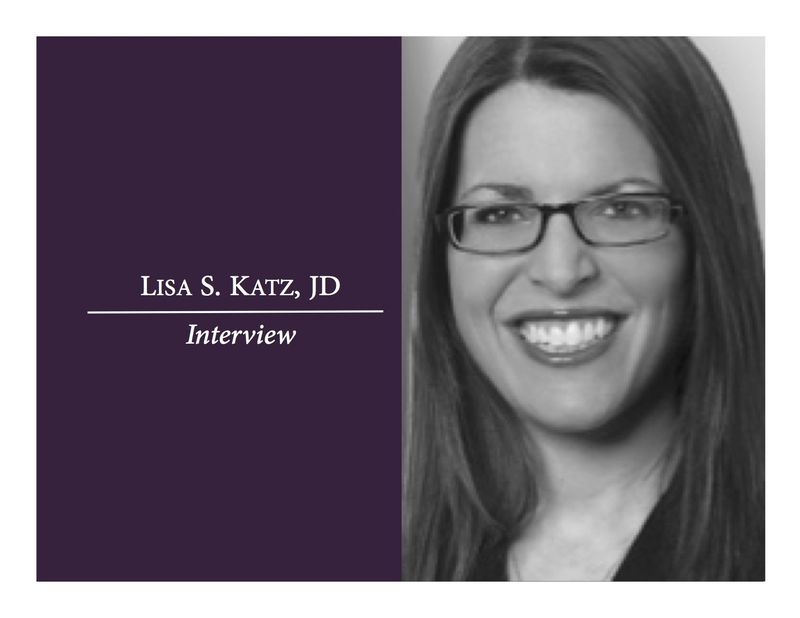 Lisa Katz earned her J.D. and Certificate in Health Law from DePaul University College of Law in 1996 and currently practices law in the healthcare group at Polsinelli PC.
Lisa Katz earned her J.D. and Certificate in Health Law from DePaul University College of Law in 1996 and currently practices law in the healthcare group at Polsinelli PC.
EP: How did you get involved in health law?
LK: I had an interest in exploring the field of health law before I began law school, which is one of the reasons I chose to attend DePaul. After participating in the write-on competition for the Journal of Health Care Law and becoming a member, I became a Health Law Institute (HLI) Fellow. I also participated in the American’s with Disabilities Act Clinic, which I found very valuable. Moreover, I became the first DePaul HLI Fellow to extern in the general counsel’s office at Northwestern Memorial Hospital, where I was able to gain experience in healthcare by working on a variety of projects in the areas of clinical integration, hospital policy and procedures, and regulatory compliance issues. During my third year of law school, I chose a health law related topic for my senior seminar paper, namely, regulation of pharmaceutical off-labeling.
EP: What do you do on a day-to-day basis as a health care attorney?
LK: I tackle a variety of issues on a day-to-day basis. I represent hospitals, physician groups and banks that lend to healthcare borrowers. On behalf of my healthcare provider clients, I interpret regulatory, licensure and compliance issues as well as negotiate, review, draft and revise various contractual and governance documents, including but not limited to, professional service agreements and medical staff by-laws. Currently, I am developing a niche with emerging HIPAA and privacy issues. For example, I am working on several projects involving “meaningful use” in relation to electronic health records and interpreting the criteria used to determine whether and how eligible professionals can attest to meaningful use and receive incentive money from government and how this affects contractual relationships among employers and employees.
EP: What advice would you give to students interested in a career in health law?
LK: I would recommend that students do not limit themselves to one, specific area; instead, think globally. Particularly, think about other industries that are ancillary to health care that are not necessarily traditional healthcare industries. For example, I branched out into the financial services industry by negotiating and documenting loan transactions on behalf of banks lending to a range of healthcare providers such as physician groups, long term care, skilled nursing, and assisted living facilities.
EP: What is the Illinois Association of Healthcare Attorneys (IAHA) and how can students interested in health law get involved?
LK: Becoming a member of IAHA is a great way for students interested in health law to participate in an organization on a more junior level. For example, IAHA offers student members the opportunity to attend quarterly lectures on emerging issues in the health care field and to join committees, including the Symposium Committee where members are tasked with planning the Annual Health Law Symposium.
Last fall, Carolyn Metnick from Barnes & Thornberg and I, along with the help of the IAHA Membership Committee, launched the IAHA Mentorship Program at the Annual Health Law Symposium. The mentoring program pairs student and junior attorney members with more senior healthcare attorneys either in firms, government, or in-house, to facilitate targeted dialogue among all IAHA members about a wide range of issues involved with working in the field of health law.
You can find more information about the IAHA at www.iahanet.org!